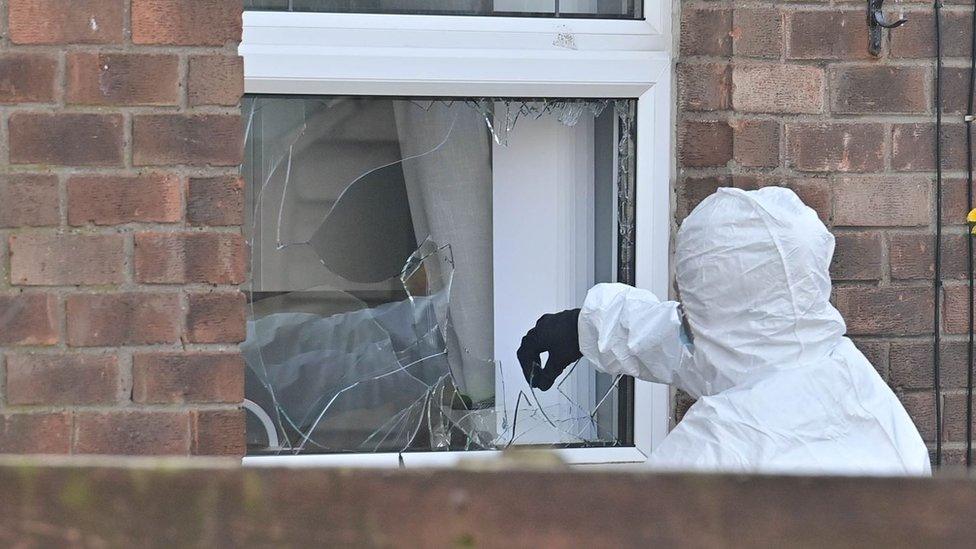Newtownards and Bangor: Attacks on homes linked to drugs feud
- Published
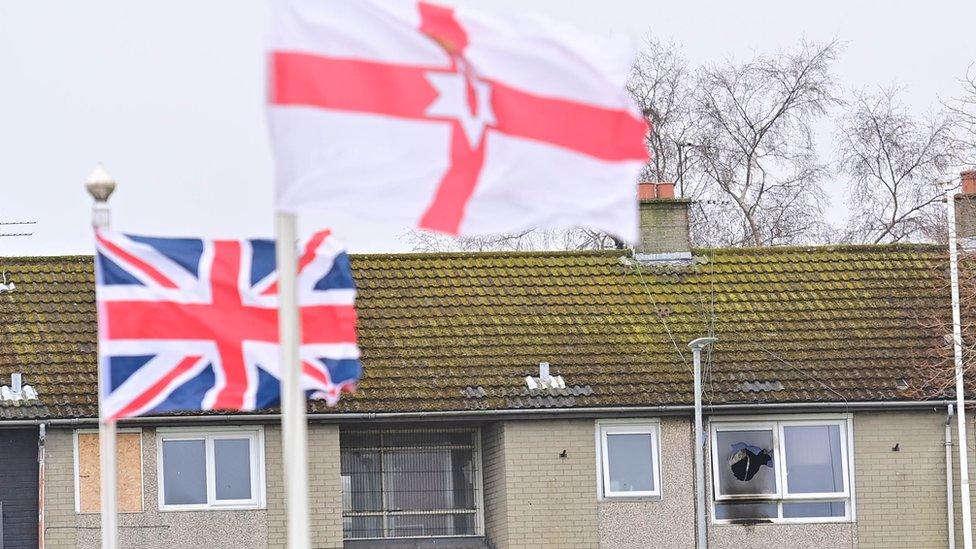
The attacks have been taking place for a number of days
There have been further attacks on properties in County Down in a dispute between rival factions of the Ulster Defence Association (UDA).
Detectives said there were petrol bomb attacks on a house in Bangor and a block of flats in Newtownards.
No one was injured in Tuesday evening's attacks, which police say are connected to a row between two drug gangs.
Up to 12 attacks in recent days are thought to be linked and there has been a large police presence in north Down.
The Police Service of Northern Ireland (PSNI) said officers were called at 21:20 BST on Tuesday to a petrol bomb attack on a house in Ballyferris Walk, Bangor.
Officers then received a report of damage to a property in Glenbrook Road in Newtownards.
At least two men threw a brick through the front window and poured petrol onto the driveway, the PSNI said.
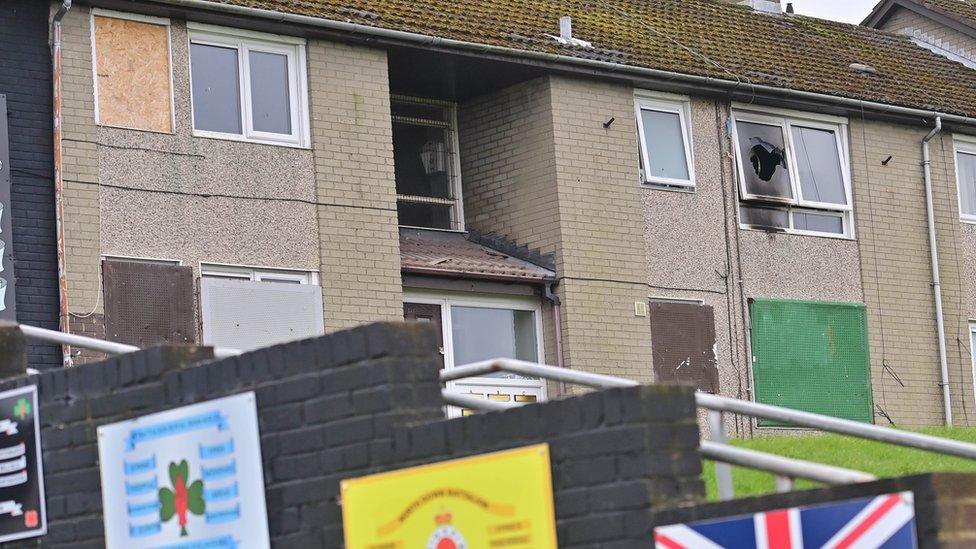
The attacks are believed to be linked to a loyalist feud
At 21:40 there was a petrol bomb attack at a block of flats in Donaghadee Road, Newtownards.
"These incidents are linked to an ongoing feud between two rival drug gangs and police are following a number of lines of enquiry," said a police spokesperson.
On Monday, police said eight other houses had been attacked since last Wednesday, and many of those were occupied.
Officers said those attacks were linked to an ongoing feud between "two rival drug gangs operating under the banner of the Ulster Defence Association in the North Down and Ards areas".
'Organised crime gangs'
The UDA was formed during the Troubles but began to splinter into criminal gangs once the conflict ended.
Ulster Unionist Party (UUP) assembly member (MLA) Mike Nesbitt said the dispute in north Down and Newtownards involved people "who are in it for themselves to line their pockets, to exercise coercive control over their community and for prestige".
He said the violence was doing a "disservice" to loyalism and Northern Ireland's international reputation ahead of the 25th anniversary of the Good Friday Agreement.
His party colleague Philip Smith, who leads the UUP group on Ards and North Down Borough Council, told BBC's Evening Extra programme that the area struggled with police resources at the best of times.
Mr Smith urged Chief Constable Simon Byrne to ensure the district commander had all the necessary resources.
"We can not have these type of incidents taking place and the police not being able to respond in the numbers that they need," he said.
'Show leadership'
Nick Mathison, Alliance MLA for Strangford, also condemned the attacks.
He said the perpetrators were "organised crime gangs that need to be taken off the streets and dealt with through the courts".
Alex Easton, an independent unionist MLA for North Down, called on other unionist leaders to do more to try to stop the violence.
Mr Easton said unionist leaders had a responsibility to show leadership and that it would help if they came out and condemned what had happened.
"Unionist leaders all have a responsibility, and this is one of them, we need to get this stopped before someone gets killed," he said.
At a meeting on Wednesday night, councillors in Ards and North Down condemned the attacks.
Mayor Karen Douglas made a statement on behalf of the council and said the "disgraceful acts of violence" would not be tolerated.


Pattern to attacks
This is the continuation of the feud between two UDA factions in north Down which really surfaced in the last week.
We have had around a dozen attacks in little under a week and there is a pattern to these attacks.
In all but one, petrol bombs have been used and there have been attacks against properties rather than individuals.
You could argue, given that we are talking about attacks on property, there hasn't been a serious and deadly escalation in this feud - loyalist feuds in the past saw gun attacks and murders.
There has been an immediate police response, three people have been arrested, some of them held under the Terrorism Act and this action is an attempt to disrupt what is happening.
There are no suggestions, at present, that this could escalate into other areas under UDA control.

Speaking on BBC Radio Ulster's Good Morning Ulster programme on Tuesday, DUP MLA Emma Little-Pengelly said there was "absolutely no space" for paramilitary or terrorism-related criminal behaviour in Northern Ireland.
Ms Little-Pengelly was also questioned on the fact that the Loyalist Communities Council (LCC) had made no comment following the attacks at the weekend.
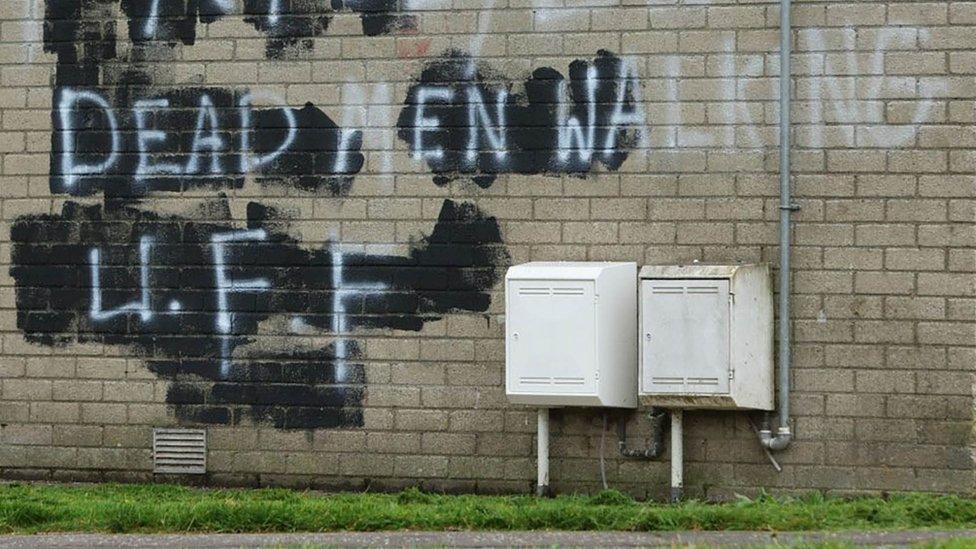
Threatening graffiti has been painted on walls in Bangor
She said: "The DUP have always made clear that we want to engage with people but we will do so constructively.
"We will do so while making it absolutely clear that any paramilitarism or terrorism or criminal gang behaviour is wrong.
"The LCC are clearly in place to talk about the issues happening within communities - they may well be coming out with some sort of statement... I don't know. I'm not across the internal dealings within that organisation."
The LCC was set up in 2015 as a means to help bring an end to loyalist paramilitarism.
It is not a proscribed organisation and is said to represent a range of individuals and views from the wider Protestant/unionist/loyalist community.

What is the UDA?
The Ulster Defence Association, formed in 1971, had tens of thousands of members at its peak.
It killed hundreds of people during the Troubles in Northern Ireland and often claimed responsibility for sectarian murders using the cover name the Ulster Freedom Fighters (UFF).
The UDA remained a legal organisation until it was banned in August 1992.
Notorious attacks by the UFF included the shooting dead of five Catholics at a Belfast bookmakers in 1992 and the Greysteel massacre the following year.
The South East Antrim Ulster Defence Association is a standalone faction of the UDA and was once part of its inner council.
Security sources have previously said that with more than 2,000 members, it is one of Northern Ireland's largest paramilitary gangs.
According to a previous MI5-police intelligence assessment, the South East Antrim UDA"has access to arms and is heavily involved in drugs supply, community coercion, intimidation and other criminality.
Read more here.

Related topics
- Published27 March 2023
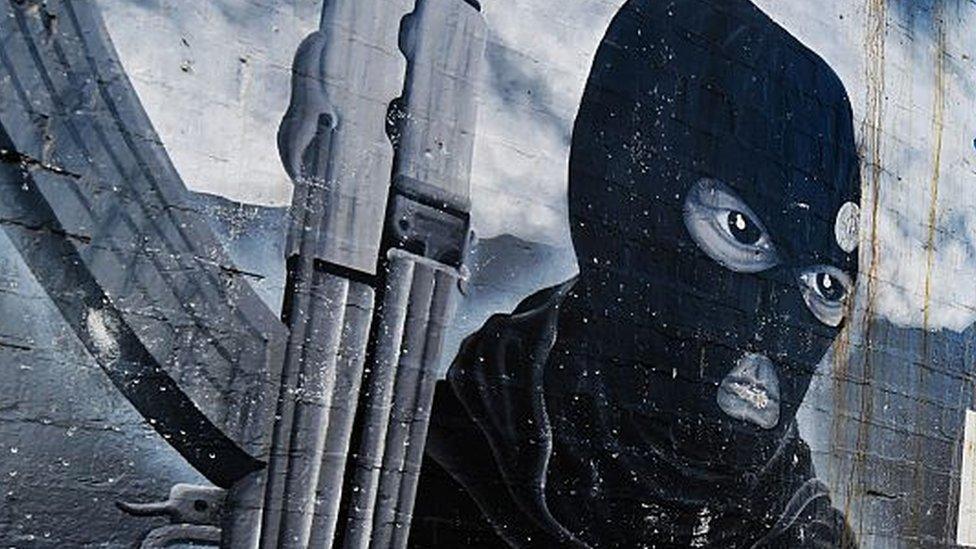
- Published29 March 2023
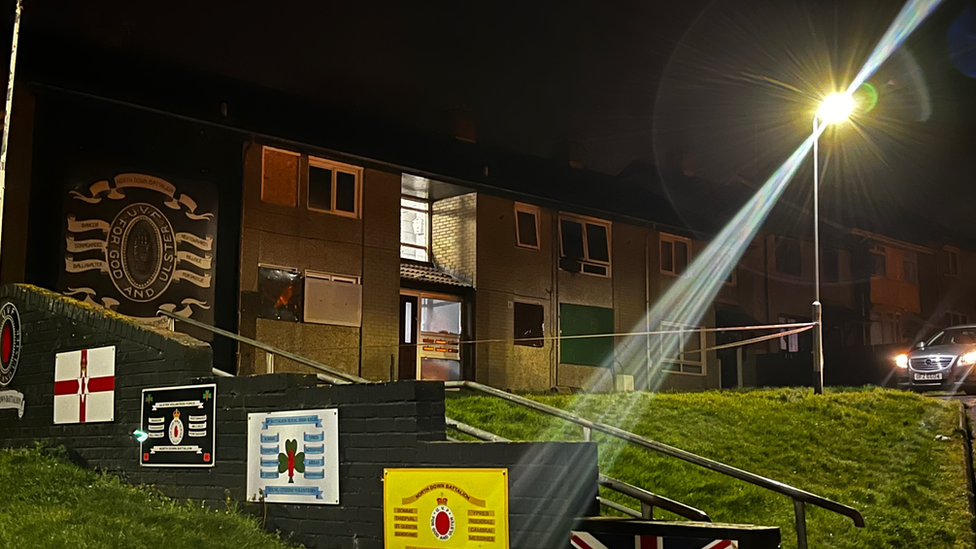
- Published27 March 2023
